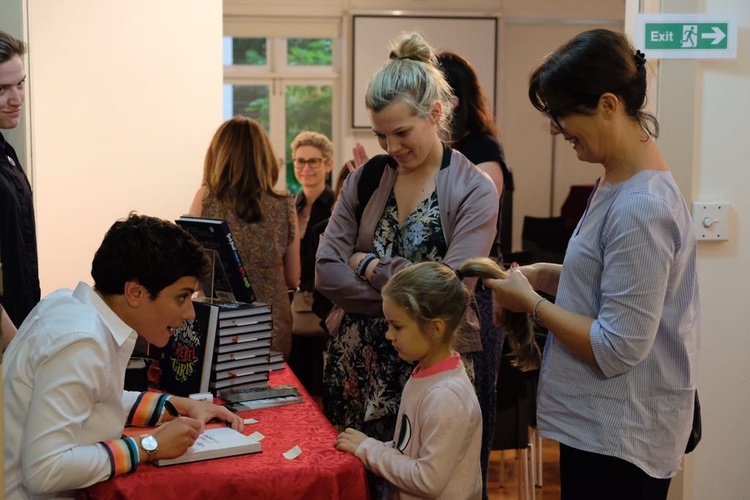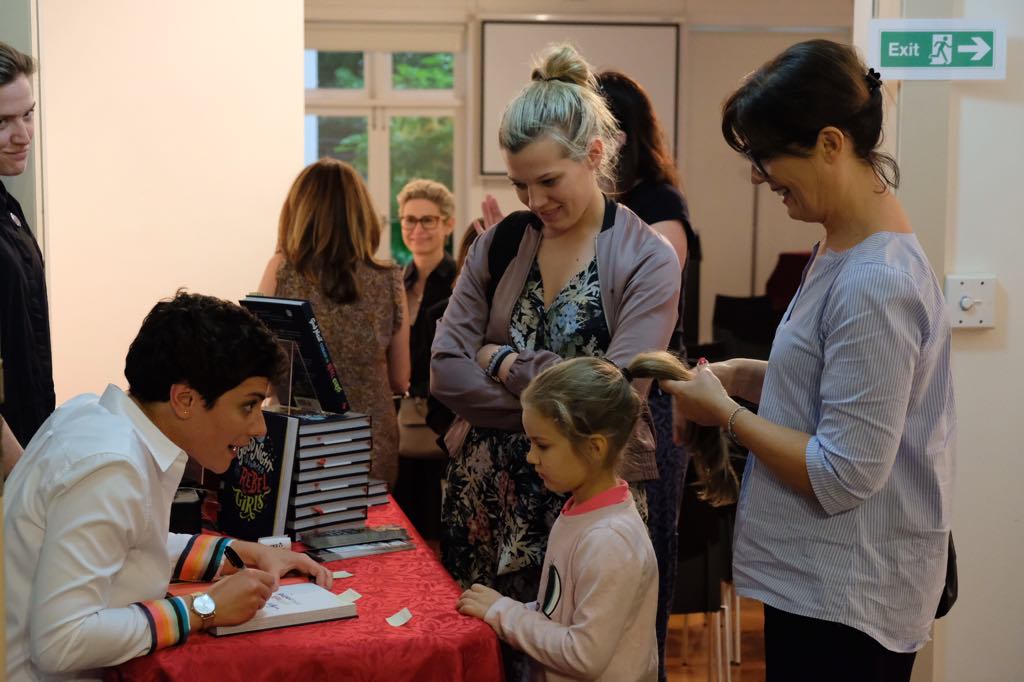Ms Cavallo and her co-author Elena Favilli were able to write, publish and sell their first book Goodnight Stories for Rebel Girls with the help of Kickstarter, a funding platform for creative projects.
Their initial project was the creation of a digital magazine for children, which led them to move to Silicon Valley in 2011 and establish Timbuktu Magazine.
They found a group of investors and began working on making the platform even more innovative.
Between then and 2014, they developed 12 Smartphone apps and gained a following of 2 million users.
However, neither of them felt completely at ease creating something which kept children glued to a device.
Soon after, they began sending out weekly newsletters in which they told the story of a woman who fought for female emancipation, allowing parents to share it with their children.
Given the immediate success this idea received, the two writers began thinking about compiling the collection of stories into a volume and working independently.
Perhaps a little naive, the pair thought all they’d have to do would be to find someone to print it and learn how to distribute it, Francesca recalled with a giggle.
“We didn’t think it was a huge issue at that point because we knew very little about publishing,” she added.
The idea landed on Kickstarter with the objective of raising US$40,000 to print 1000 copies.
The crowdfunding ended after just 29 days, in which they raised US$675,000 donated from across 75 different countries.
It became the book to receive the most funding ever in the history of crowdfunding.
One hundred stories of 100 women, past and present, who fought for female emancipation and to make their lives extraordinary.
This is the content of Goodnight Stories for Rebel Girls, which recently saw the release of a second volume.
Francesca and Emma met in Milan where the latter was working as a journalist, while the former had moved from Taranto to work as a theatre director.
At the event hosted by the IIC - moderated by PhD candidate and Italian tutor at La Trobe University, Kylie Doust – Francesca told of having felt the need to define herself as a rebel in order to maintain her identity.
Raised in a typically southern Italian family, Francesca was never drawn to the female stereotype admired by her peers.
“Growing up I realised that if I wanted to maintain my identity and not conform to society’s expectations of women, I had to be a rebel,” she explained.
When a child in the audience asked, “Where do you find all of this information?”, the author explained that reading lots of books was fundamental.
“If you read, you begin to learn all of these things over time, and you don’t know where you learnt them,” she said.
Francesca also outlined the story selection process.
“We identified three criteria. The first was to give space to women of diverse professions and different fields: judges, stylists, doctors and firefighters,” she said.
“The second was to consider people from all over the world. Thirdly, we had to find women with fascinating stories for children across the world, instead of just compiling biographies.”
An interesting component of the book is its illustrations.
Elena’s passion for illustrated books led her to pay much attention to the quality of the designs featured in the volume.
Every story is accompanied by an original colour portrait, designed exclusively by women.
The book is aimed at girls aged between eight and nine, but has been bought by women of all ages across the world, even those without children.
The message is clear: there are at least 100 different ways girls can be rebels and learn to listen to their own hearts, making the most of the circumstances they find themselves in.
Francesca’s favourite story in the volume is that of Lella Lombardi, a Formula One driver from Piedmont who learnt to drive while delivering salami for her butcher father.
He would time her every time they had a delivery, and that was how she managed to work towards her dream with the resources she had.
When asked which rebel inspired her, Francesca named her mother who, despite being a traditionalist, has always defended her own ideas and way of looking at things.
“You don’t have to think of rebels in the general sense, as there are many ways in which you can be one,” she said.
“It depends on individual aspirations and interests.”
But it’s not enough to be highly motivated or passionate about a goal in order to reach it.
As Francesca explained, being a rebel is a way of surviving for women who live in countries where their rights are almost non-existent.
“When you live with an abusive husband, being a rebel is a way of surviving; it’s a necessity rather than a luxury,” she said.
Francesca isn’t afraid to say that the book is a feminist work which males should also read.
“It’s important that they understand that women can play an important role,” she said.
“Unfortunately, a woman is judged today before she opens her mouth.”
Francesca added that since she was a child her favourite characters have always been males, from Inspector Gadget to Superman, as they were the ones who played the most important roles.
There was also a personal experience which inspired the book.
“Elena read and loved a book entitled I grandi della storia, and leafing through it I realised that they too were all men,” she said.
“We thought it was right to show female heroines to the new generation of girls.”
At the end of the event, one girl asked what the role princesses in fairytales play in this context.
With a hint of sarcasm, the author explained: “Try to think of what these girls do during the day. Their goal is to find a prince who saves them and gives them a wonderful life. I think it’s much cooler to find your own passion, turn it into a job and feel like you’ve contributed to the world in some way. After all, there aren’t many princesses around...or princes for that matter.”
Women aren’t often depicted in children’s books as workers, and it’s rare to find female figures with career aspirations in the media aimed at children.
“And it’s the year 2018!”












